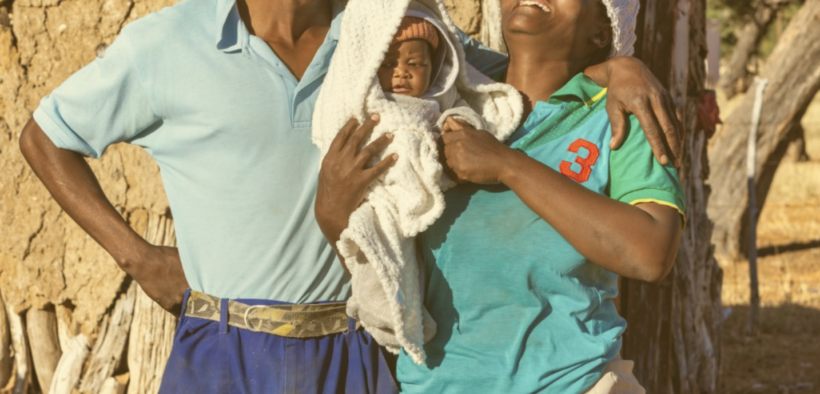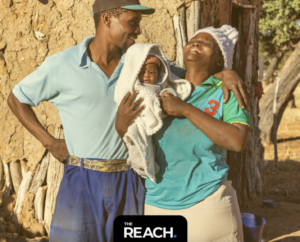Making ‘Global Disciples’
Creating discipleship training programs in near-culture contexts

This is another in the MinistryWatch series highlighting groups engaged in the “new paradigm” in missions: equipping near-culture missionaries to reach their own people.

Photo via social media @Global Disciples
Christians are operating a general store in northern Nigeria “under the nose” of terrorist group Boko Haram, reaching their neighbors with the Gospel and hosting a worship service in their store’s back room.
They are indigenous or near-culture disciple makers who have been trained under a model developed by Global Disciples.
For 28 years, Global Disciples has been committed to training indigenous or near-culture leaders to make Christian disciples among their own people.
It recognizes that during the last century, the world’s population of Christians has shifted from 80% living in North America and Europe to the majority — two-thirds — living in Asia, Africa, and Latin America. This population shift calls for a shift in missions strategy.
Access to MinistryWatch content is free. However, we hope you will support our work with your prayers and financial gifts. To make a donation, click here.
Rather than sending western missionaries to plant churches, Global Disciples works with a local cluster of churches to develop a training program for their own people to be near-culture disciple makers. Then the new converts want to gather and grow spiritually so they establish churches, founder Galen Burkholder said.
According to Global Disciples, 25,000 disciple-makers were trained around the world by the nearly 3,500 active training programs operating in 76 countries around the world last year. More than 69,000 new believers were reached with the Gospel based on the efforts of the disciple makers that have been trained in these programs.
Some of the most active discipleship training programs are in Africa and South Asia, often in some of the least-reached areas. For instance, Global Disciples has 231 training programs across the country of Myanmar and are reaching people with the Gospel in remote villages.
In the late 1980s, Burkholder had a very different vision of missions than he does today. He was working in discipleship training to send young people from the west to “do missions” for Eastern Mennonite Missions. As he met with national pastors in Africa, they began to ask for similar training for their young people.
A common issue was that the African young people would leave their homeland to get leadership training in the west then return and work for a non-governmental organization, rather than the church.
Burkholder wanted to help these native church leaders, so one day in 1989 while waiting on a delayed flight at JFK Airport, Burkholder spent the day fasting, praying, and developing an idea for a training co-op to share ideas and resources for training disciple makers.
The African leaders he visited on the trip were very receptive; however, the idea was not received by the mission board when he returned home so Burkholder set it aside in a file, prayed, and waited for the Lord.
Several years later, in 1995 when Burkholder was about to take a five-month sabbatical, he felt God told him, “I want you to quit your job” to start the training alliance he had envisioned. Global Disciples was born.
From the beginning, Global Disciples’ leaders agreed to five commitments that remain at its core:
- To share all discipleship training materials freely.
- To serve as mentors to new discipleship programs that grew out of Global Disciples.
- To pray and fast one day per month for Global Disciples and its training programs.
- To gather once a year to pray, worship, and learn from each other
- To give 2% of training budgets to launch new programs around the world.
The three phases, or types of training, Global Disciples offers are: global discipleship training, small business development training, and leadership exploration and development training (LEAD).
Global discipleship training is the first phase with a focus on “being Christ-like disciples who make disciples” along with practical application of outreach and church planting. This can be accomplished in a six-week intensive, but often takes students up to a year to complete.
In some of the hardest to reach areas of the world, sending fully-supported missionaries is not sustainable. Small business development training follows the “tent maker” model of Paul, opening the opportunity for pastors to support themselves and engage in ministry by helping them develop a skill and start a small business that allows them entry into a community.
The Nigerian general store, bicycle repair businesses, and agricultural businesses are some examples.
Church associations may select a person to participate in LEAD training, an ongoing discipleship and mentorship program to develop additional near-culture leaders to become trainers that equip others and continue the cycle.
For three years, Global Disciples helps fund the cost of training, but by the end of the third year, the training program becomes locally sustainable.
When it comes to the future, Burkholder said the ministry just wants to continue to be a part of what God is doing. The ministry has been expanding. It took 25 years to move from five training programs to 1,000, but only six years to move from 1,000 to 3,000 training programs.
During COVID, Burkholder said they realized how flexible and sustainable their program is. The training programs in native languages, cultures, and contexts could continue even if the westerners couldn’t visit.
“If Global Disciples disappeared, what we started would continue,” Burkholder said.
One of Global Disciples’ core values is “unwavering integrity,” Burkholder noted. Its facilitators do random checks to ensure the reported numbers from field programs are accurate. “There’s no advantage to people exaggerating the numbers because they don’t get any more money, status, or awards,” he said.
In the MinistryWatch database, Global Disciples has a 3-star financial efficiency rating, an A transparency grade, and a high donor confidence score of 98.
TO OUR READERS: Do you have a story idea, or do you want to give us feedback about this or any other story? Please email us: [email protected]




